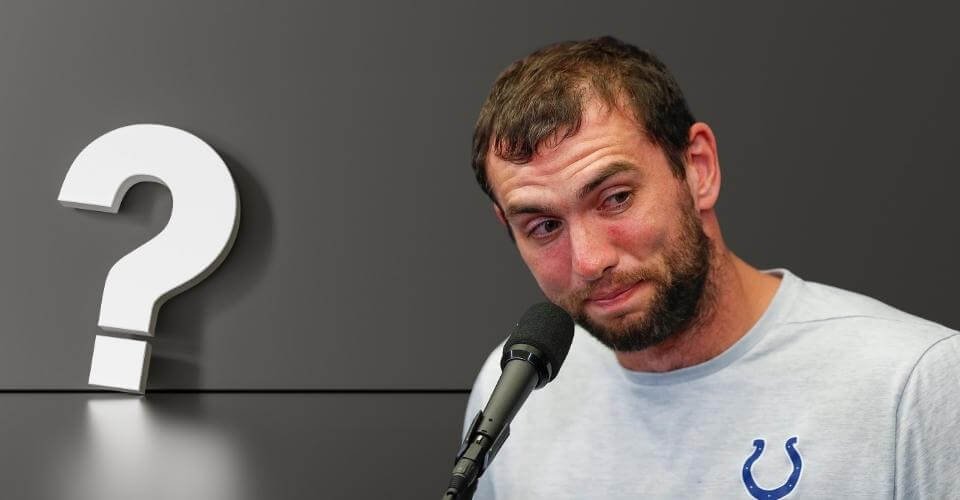Andrew Luck, an NFL quarterback known for his intelligence, skill, and humility, was a fan favorite for several reasons. His success began in college, where he excelled at Stanford University, and his transition to the NFL as the first overall pick by the Indianapolis Colts in 2012 was met with high expectations.
Fans admired Luck not only for his exceptional talent, showcased through his strong arm and decision-making on the field but also for his sportsmanship and dedication to the game. His leadership, both on and off the field, combined with a down-to-earth attitude, made him a beloved figure in the football community.
However, Luck’s sudden retirement in 2019 came as a shock to fans and left a sense of regret both for him and his admirers. He had become synonymous with the Colts and was seen as a player who could potentially lead the team to Super Bowl victories. The decision to step away from the game was driven by a combination of his mounting physical injuries and the toll they took on his mental well-being.
Read more about Luck’s decision!
Why Did Andrew Luck Retire?
Andrew Luck’s retirement from football was influenced by a combination of mental and family pressures. As a top-tier quarterback, Luck realized that excelling in his professional career came with significant sacrifices, including those concerning his personal life.
The realization that his private life was being affected by his commitment to the game came after the fact, and he acknowledged feeling remorse for not being on the field even during periods of injury.
However, Luck also expressed regret about the timing of his retirement and how it affected those around him, leading him to grapple with feelings of letting people down and the subsequent need to learn self-forgiveness.
Leaving his role as quarterback in Indianapolis, Luck embarked on a new chapter by enrolling in graduate school at Stanford University with his wife and children. While he intends to teach and coach football, he has chosen not to pursue opportunities in the NFL.
Reflecting on his decision, Luck later recognized personal flaws that he was compelled to address, adding that he realized he had become “self-absorbed, emotionally withdrawn, and burdened by pressure.”
Conversations with those close to him, like his wife, were instrumental in making him see himself beyond the role of a quarterback, prompting him to reconsider his priorities and motivations.
Why Does Andrew Luck Regret Retiring?
Andrew Luck expressed regret about retiring due to a combination of factors. One significant aspect of his regret revolves around the timing of his decision. He felt that his retirement announcement might have let down his teammates, coaches, and fans, especially given that it came relatively close to the start of the NFL season. This timing potentially disrupted the team’s preparations and plans for the upcoming season.
Additionally, Luck struggled with the feeling that he had not fulfilled his obligations as a quarterback and leader of the team. Notably, he acknowledged feeling guilty about not being on the field, even when he was dealing with injuries. This sense of responsibility and the desire to contribute to his team’s success weighed heavily on him, leading to feelings of remorse after stepping away from the game.
Overall, his regret seems to stem from a mixture of his personal expectations, a feeling of letting others down, and the abrupt nature of his retirement.
Despite the underlying reasons for his decision to retire, the emotional toll it took on him and his perception of its impact on those around him played a significant role in his sense of regret.
Andrew Luck’s Career
Andrew Luck, a standout in college football, transitioned to the NFL as the first overall pick by the Indianapolis Colts in the 2012 NFL Draft. His arrival was met with high expectations, which he lived up to by immediately making an impact in the game.
Luck’s career was characterized by his exceptional football IQ, remarkable arm strength, and ability to read defenses. He led the Colts to multiple playoff appearances, showcasing his prowess in critical game moments and earning accolades like NFL Rookie of the Year in 2012.
Despite his successes, a series of injuries, including a significant shoulder injury that required surgery, began to take a toll on his performance and well-being. This culminated in his unexpected retirement announcement in 2019 at the age of 29.
Citing the physical and mental toll of injuries, Luck’s decision to step away from the game sparked discussions about the physical demands of professional football and the challenges faced by athletes in maintaining their health and longevity.
While his legacy extends beyond his on-field accomplishments, Luck is shining a spotlight on the complexities of a career in the NFL and the importance of player well-being.
What do you think of successful individuals giving preference to their physical and mental well-being first?
Do you think most successful careers take a toll on the sportsmen? What do you think of Luck’s decision? Write to us below!

